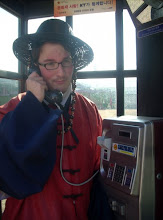Simone Weil in one her letters to the French Catholic priest Fr. Perrin wrote:
God's mercy is manifest in affliction as in joy, by the same right, more perhaps, because under this form it has no human analogy. Man's mercy is only shown in giving joy, or maybe in inflicting pain with a view to outward results, bodily healing or education. But it is not the outward results of affliction that bear witness to divine mercy. The outward results of true affliction are nearly always bad. We lie when we try to disguise this. It is in affliction itself that the splendor of God's mercy shines, from its very depths, in the heart of its inconsolable bitterness. If in persevering in our love, we fall to the point where the soul cannot keep back the cry," My God, why hast thou forsaken me?" if we remain at this point without ceasing to love, we end by touching something that is not affliction, something not of the senses, common to joy and sorrow: the very love of God.
In my understanding of things, Weil seems to be right. Affliction, in-of -itself a bad thing, becomes through our faith in God’s will, a touch point, while definitely not being a pleasant one. We are not meant to understand all things at all times, we are often meant to stand before the awesome mystery of God, of the universe, and simply behold it. To be able to do that is salvation.
The field wherein this occurs is the present moment. Salvation isn’t something in the past and it isn’t something in the future. Working out one’s salvation is something done now. The Greek philosopher Zeno discovered an interesting paradox about time. When we look at an arrow shot across a field, we see only a moving arrow moving toward a target. But if we were to freeze time and examine it at any given moment of its flight, we would see the arrow suspended in mid-air. The present moment is like that for us. It’s easy to let our lives seem like a trajectory from point A to B but in reality, those points do not exist. The past is but memory and the future mere conjecture. This sort of thinking is probably cliché but like many clichés, it contains truth. It is in the present moment and the present moment only, that we truly live and can truly be open to God. It’s easy to get lost and fail to see that. We pour over our lives, our past, and our goals looking for meaning.
It has been nearly two months since my wife, Robin has died. I have been lost in the memory of the joy and Grace that characterized our life together and in the dark mire of my future without her. I stand between the two. I am where am now because of her, and will be where I shall be because of her also.
The future is no business of my own. Robin’s future, with all its expectations and possibilities, was in an instant no more. Her earthly life is over. As for me, it is for God alone to know where I am going. But where I have been is mine. Memory can be a burden, yes, but it is also can be a brilliant gift of God in the present moment. Memory is the outline of things that have framed our present moment, the field where we experience God and truly live.
